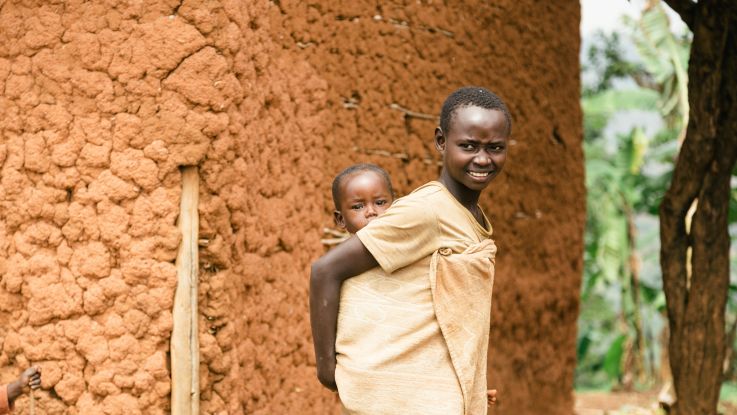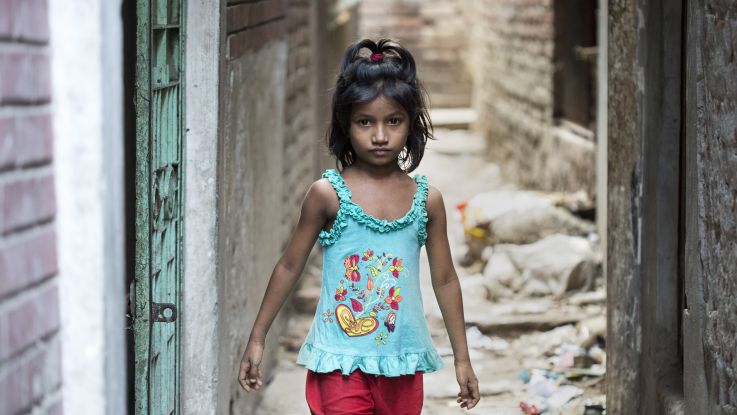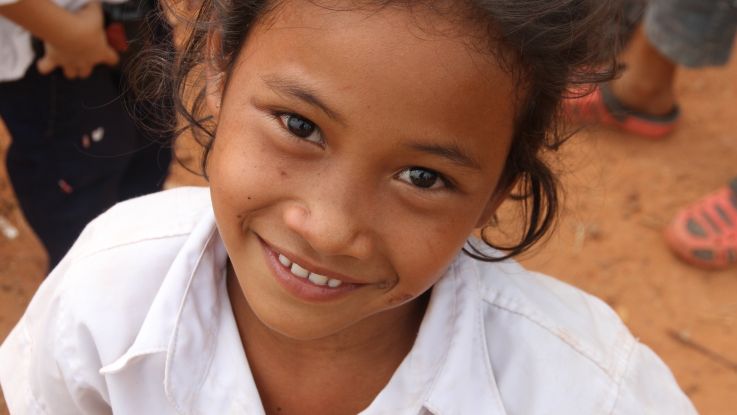Jordan
Why we work in Jordan
We support refugees, women and young people in Jordan who suffer discrimination because of their gender or age.
Refugee crisis
The ongoing conflicts in Syria and the occupied Palestinian territory has resulted in several million people seeking refuge in Jordan.
In Jordan, there are 71 refugees per 1,000 inhabitants, making it the second-highest density of refugees in the world.
Over 600,000 Syrian refugees are registered in Jordan4, and it is estimated that over 2 million Palestinian refugees also reside in the country.5
The vast majority of displaced people and refugees in Jordan are women and children, who are in a particularly vulnerable position.
Youth unemployment
Countries in the Arab region have the highest regional youth unemployment rate seen anywhere in the world.6
In Jordan, 68% of the population is below 30 years of age, of whom 33.7% are between the ages 15 - 307.
The biggest challenges facing young people in the Arab region are unemployment, low wages, and high inflation.
Young people are in a particularly disadvantaged position, as they are socially marginalised and have limited space to exercise their democratic rights.
This is particularly pronounced amongst women who face additional social, cultural, and legal restrictions due to their gender.
Violence against women and girls
Discrimination continues to prevent women and girls in Jordan from realising their social, political, and economic rights and is often perpetuated by law.
For example, an ActionAid study in Jordan found that one in five women experienced one or more forms of violence in the workplace, with violence and harassment occurring on the way to and from work, 40% of the time.8
Female Syrian refugees in Jordan face major challenges in accessing basic information and resources.
There are also increasing safety risks as the Syrian crisis approaches its ninth year.
Women and girls from refugee communities are subjected to sexual exploitation and trafficking. There are reported instances of Syrian refugee girls and women being sold into 'temporary' or forced marriages to Jordanian men, which in many cases leads to forced prostitution.9
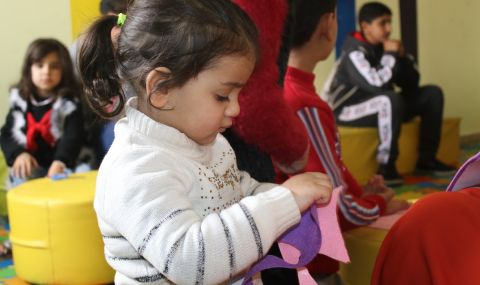
Psychosocial activities supported by ActionAid help to increase children's social and psychological wellbeing, through art and drama.
What we do in Jordan
Improving support for refugees
We have established women's circles in Jordan to build the resilience of refugees, and other vulnerable women and children affected by the Syrian crisis.
Women-led community groups help identify problems; distribute essential items; teach women about their rights, and provide psychological support.
Combating violence against women and girls
We work closely with local feminist groups to challenge authority, discrimination and violence, in both domestic and public spaces.
We are starting a pilot project in partnership with a national mobile network operator in Jordan and women's groups.
The project will roll out a low-cost, women-designed mobile platform to provide vital and up-to-date information.
Women can access information on their rights, local services, safe spaces, confidential referrals and the ability to report incidents via this platform.
Building safer cities for women
Women and girls in Jordan are particularly vulnerable to discrimination including street harassment.
We work with local organisations to help change social attitudes to sexual harassment of women, train male and female students, and empower communities.
We empower public service providers to create or improve services for women, such as health services, public transportation, and safety whilst using public spaces.
Improving access to justice
We are working with feminist school graduates in Jordan who are demanding change for survivors of violence and helping women to assert and claim their rights in the legal system.
Supporting communities during the Covid-19 pandemic
ActionAid has been working to support vulnerable communities throughout the coronavirus crisis.
We have reached hundreds of people across Jordan as part of our response: distributing cash assistance to people living in poverty, running awareness-raising campaigns to prevent gender-based violence, and offering psychosocial support to survivors of violence.
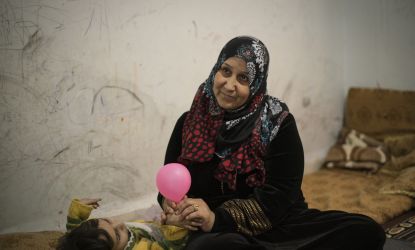
Training refugees on their rights
When the conflict in Syria began, Feda fled to Jordan with her five daughters, leaving behind their house and their money.
Her husband decided to stay back but has since remarried and doesn't send any money to support the family.
Feda first came to to the Zaatari camp in Jordan, but it felt unsafe and life was difficult. The bathroom and kitchen were far away from their shelter and they had no electricity or food.
Sometimes I don’t have enough money to buy food for my children."
It was while living in the Zaatari camp where Feda found out about ActionAid.
She met other women through women's safe spaces and learnt about her rights.
ActionAid provided her with training and resources, and Feda has now found a job as a cleaner and her daughters have started to go to a local school.
Feda says ActionAid has helped her to feel more independent as a single mother and has helped her to know her rights, but she dreams of one day going back to her home.
My one hope is to go back to Syria.”
Rajad (12) and Feda (42) at their home in Mafraq, Jordan.
Sharron Lovell/ActionAid
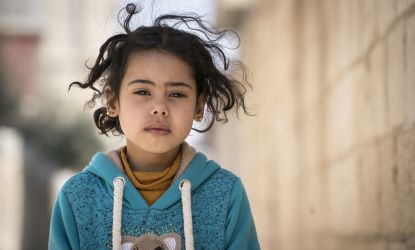
Five-year-old Safa outside her home in Mafraq, Jordan.
Sharon Lovell/ActionAid
Providing essentials to refugee families
Five-year-old Safa lives with her twin sister, Marwa, her brothers, Mohammed and Ali, and her parents in Jordan.
They left Syria in 2012 because her mother, Radwa, was frightened for her children after an airstrike hit their house.
Since the family left everything behind, they don’t have enough money to care for their children and to buy medicine for their sick father.
The family has received essential items from an ActionAid distribution, such as shampoo, nappies and clothes wash.
Footnotes
- 1 https://databankfiles.worldbank.org/public/ddpext_download/poverty/987B9C90-CB9F-4D93-AE8C-750588BF00QA/current/Global_POVEQ_JOR.pdf
- 2 https://databankfiles.worldbank.org/public/ddpext_download/poverty/987B9C90-CB9F-4D93-AE8C-750588BF00QA/current/Global_POVEQ_JOR.pdf
- 3 https://www.girlsnotbrides.org/learning-resources/child-marriage-atlas/atlas/jordan
- 4https://data2.unhcr.org/en/situations/syria/location/36
- 5https://www.unrwa.org/where-we-work/jordan
- 6https://social.un.org/youthyear/docs/Regional%20Overview%20Youth%20in%20the%20Arab%20Region- Western%20Asia.pdf
- 7http://dosweb.dos.gov.jo/DataBank/yearbook/yearbook2016.pdf
- 8https://www.actionaid.org.uk/sites/default/files/the_justice_deficit_for_women_in_jordan.pdf
- 9Trafficking in Persons Report 2016: https://www.state.gov/documents/organization/258880.pdf
Page updated 29 January 2025
